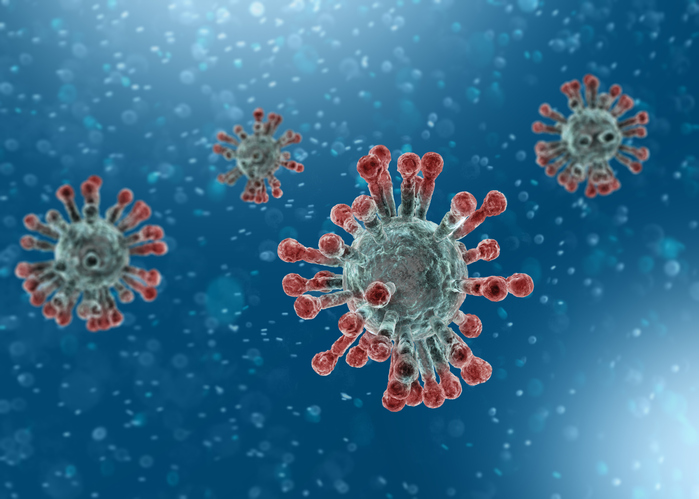Click here to Subscribe to Chips Tips Blog
Coronavirus and You: Guard Against COVID-19 With These Tips

Coronavirus is everywhere right now it seems - on the news, in the papers and here in Ontario.
At the time of this post, Canadian health workers have reported 35 cases of coronavirus. The bulk of those cases are right here in Ontario.
Perhaps haunted by memories of the 2003 SARS virus outbreak, local and national government officials are mobilizing to limit travel and contact with affected persons.
Thanks to the media, we now know the number one way coronavirus passes from one person to another is through the air. So indoor air quality is suddenly on everyone's mind!
This explains the rising number of calls we are receiving here at Gravenhurst Plumbing, Heating & Electric.
Can you protect yourself and your family from coronavirus by using indoor air quality technology? The answer is "yes." Read on to find out what we are recommending to our customers.
Coronavirus: A Quick & Dirty Overview
Coronavirus was first detected in Hubei province in the city of Wuhan, China. Infected travellers returning from this region are now spreading coronavirus elsewhere, including here in Canada.
What is coronavirus?
The 2003 SARS virus is closely related to coronavirus - so closely related, in fact, that coronavirus's new scientific name is SARS-CoV-2. This name basically means SARS virus, novel variant number two.
The disease that the coronavirus, SARS-CoV-2, causes is called COVID-19.
How does coronavirus spread?
Health officials have identified three main ways the virus spreads:
-
Through the air
-
By touching an infected person
-
Through touching a common contaminated surface
Of these three methods, the most common transmission method by far is airborne.
What are the symptoms of coronavirus?
Coronavirus can stay dormant inside a person for up to 14 days before any symptoms start to appear.
Sometimes symptoms are mild. Sometimes they are not. Symptoms are a lot like other respiratory illnesses at the beginning, making it hard to know what you've got.
The main symptoms of coronavirus that have been identified are:
-
Coughing
-
Trouble breathing
-
Running a fever
-
Pneumonia (usually in both lungs)
-
Development of secondary infections (respiratory or sometimes kidney)
How Can You Protect Yourself from COVID-19?
Health Canada has released information about the best basic ways to protect yourself. As you might expect, most of these methods rely on vigilance and common sense.
-
Wash your hands for at least 20 seconds before touching your face or preparing food and after touching any common surfaces, coughing or sneezing or blowing your nose.
-
Use hand sanitizer in an alcohol base if you can't use soap.
-
Self-quarantine at home if you think you have symptoms of COVID-19. If anyone at work is sick, ask your boss about telecommuting until their illness is identified.
-
Wear an N95-rated mask if you work in the health industry or have reason to believe you may come in contact with the virus.
-
Try to avoid physical contact with others - instead of a handshake, try a simple smile.
-
Be especially careful if you have a compromised immune system, which makes you more vulnerable to catching coronavirus. Eat a healthy diet, drink plenty of water, get good sleep, take vitamin C and try to keep your stress level low (i.e., don't watch scary stories about coronavirus on the news!).
Improve Your Indoor Air Quality to Reduce the Threat of Coronavirus
You won't have to look far right now to find lots of wild claims about how different appliances and aids can neutralize or block coronavirus.
Technically speaking, though, there is nothing that can completely block coronavirus from ever reaching you.
Sometimes the best protection is simply reducing your risk.
This is what recent research has confirmed about how using indoor air quality aids may help reduce your risk of encountering the coronavirus at home or at work.
HEPA air filtration for coronavirus
HEPA stands for high efficiency particulate air. HEPA filters are used all over the world in hospitals, health clinics and research laboratories today. They are the "gold standard" of all filters - the densest, highest-grade filters on the market.
Having said that, HEPA filters block out only 99.97 percent of airborne particulate matter (tiny floating particles, basically).
HEPA filters can block floating particles as small as 0.3 microns, or 1/100th the size of a single one of your hairs. But some coronavirus particles may be smaller than this.
And HEPA filters work only when they are filtering 100 percent of your indoor air, which means you may need to do some weatherstripping and sealing and duct repair to get the best results.
The N95 face masks that health workers are wearing use the same basic filtration technology that is used in home and workplace HEPA filtration systems.
And the Centers for Disease Control (CDC) states that HEPA filtration should be present in any areas where infected persons are being treated.
Central (ducted, whole home) and portable HEPA filters are available to help you clean and purify your air at home and work.
Ultraviolet air purification for coronavirus
Ultraviolet light is still the most powerful sanitizing agent on the planet. UV-C is the most effective light band, and that is what modern ultraviolet air purifiers use.
When UV-C light hits the coronavirus, it does what it does to all dangerous matter - it changes the particles' molecular structure, neutralizing their potentially dangerous effects.
As with HEPA filters, the key to success with using UV air purifiers is to make sure all indoor air encounters the air purifier before it gets to you.
The University of Columbia outlines why UV-C light can work to prevent coronavirus from spreading through the air.
Central and portable UV air purifiers are available to use at home and work.
Get in Touch
Contact us online or give us a call at 877-885-3403.

